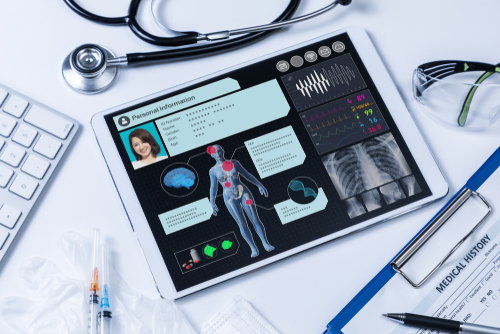



Get new exclusive access to healthcare business reports & breaking news




In a bid to improve its telehealth capabilities, NewYork Presbyterian-Hospital has engaged Royal Philips to provide remote patient monitoring software, as new telemedicine solutions continue to hog the limelight.
In a statement, Philips said physicians affiliated with NewYork-Presbyterian’s Weill Cornell Medicine will use Philips eCareCoordinator and eCareCompanion remote patient monitoring software solutions for patients who are under their care.
“The program will help clinicians monitor patients’ health from a distance, and enable timelier consultations with physicians when needed. The program is aimed to help reduce length of stay in the hospital, reduce preventable hospital readmissions, and reduce frequent costly visits to the emergency department. The hospital’s affiliated physicians at Columbia University Irving Medical Center expect to participate as well,” the statement said.
Peter Fleischut, a senior vice president and the chief transformation officer at NewYork-Presbyterian said they were pleased to collaborate with Philips to empower patients, who don’t need to be in the hospital, to actively monitor their health from the comfort of their home. “As a national leader in telemedicine, we are committed to adopting innovative technologies that make it easier for patients to access our high-quality, compassionate care.”
With remote patient monitoring, NewYork-Presbyterian hopes it can reduce the number of patients that visit its facilities. In addition, Healthcare Dive explained that remote patient monitoring is a growing part of the digital health space, with its impetus being driven by an aging population and efforts to better manage chronic diseases.
Derek Ross, an official at Philips, said there was an increase in the number of people living with chronic conditions, adding that there was a need for hospitals and health systems to innovate in ways that would allow them to best manage the growing demands on their resources.
“Transformational leaders like NewYork-Presbyterian see the value of how virtual care and advanced telehealth solutions can empower both clinicians and patients with the resources needed to deliver quality care in the home to help achieve improved outcomes and reduce costs,” Ross said.
NewYork-Presbyterian will use Philips eCareCoordinator telehealth software platform, which allows clinicians to remotely monitor patients’ vital signs and send patients short surveys about their health status. The companion platform, eCareCompanion, allows patients to share health information – such as blood pressure, weight, blood oxygen levels, and glucose levels – with their care team via a tablet and connected medical devices on a daily basis.
This data enables clinicians to make informed, proactive, and timely care decisions, particularly if they notice something in the patient’s daily health information that needs attention, the statement said.
“NewYork-Presbyterian patients with hyperglycemia who were part of the first remote patient monitoring clinical pilot reported an 89 percent satisfaction score. NewYork-Presbyterian recently began programs to remotely monitor patients with congestive heart failure and new mothers with high blood pressure, and will be launching programs to monitor several other clinical conditions, including those related to maternal health and diabetes,” the statement continued.
NewYork-Presbyterian, Healthcare Dive reported, has a track record of using telemedicine and health IT tools “with the aim of increasing patient access and enhancing quality of care. In 2016, the nonprofit health system launched its OnDemand suite of digital health services, rolling out Second Opinion, Adult Virtual Urgent Care and Virtual Visits during that year. The last — a collaboration with American Well — lets patients connect with NYP’s physician network via a smartphone or computer.”
Last December, Philips announced that it had agreed to a 10-year deal with NewYork-Presbyterian to implement Philips IntelliSpace Enterprise Edition solution across its hospitals and facilities. The IntelliSpace Enterprise Edition provides the health system with access to Philips’ full suite of informatics solutions across radiology, cardiology and analytics to help improve efficiencies and care delivery.
Telehealth solutions are meant to reduce the costs of delivering healthcare with an emphasis on convenience. More than half of all U.S. hospitals have implemented remote patient monitoring capabilities.
The North American telehealth market is expected to reach $9.49 billion by 2024, with more players seeking a piece of the pie.
Last year, Walgreens launched Find Care Now, which it described as a “digital platform and marketplace that helps connect our millions of mobile and online visitors to health care services at our stores and to a growing selection of recognized providers in the community.”